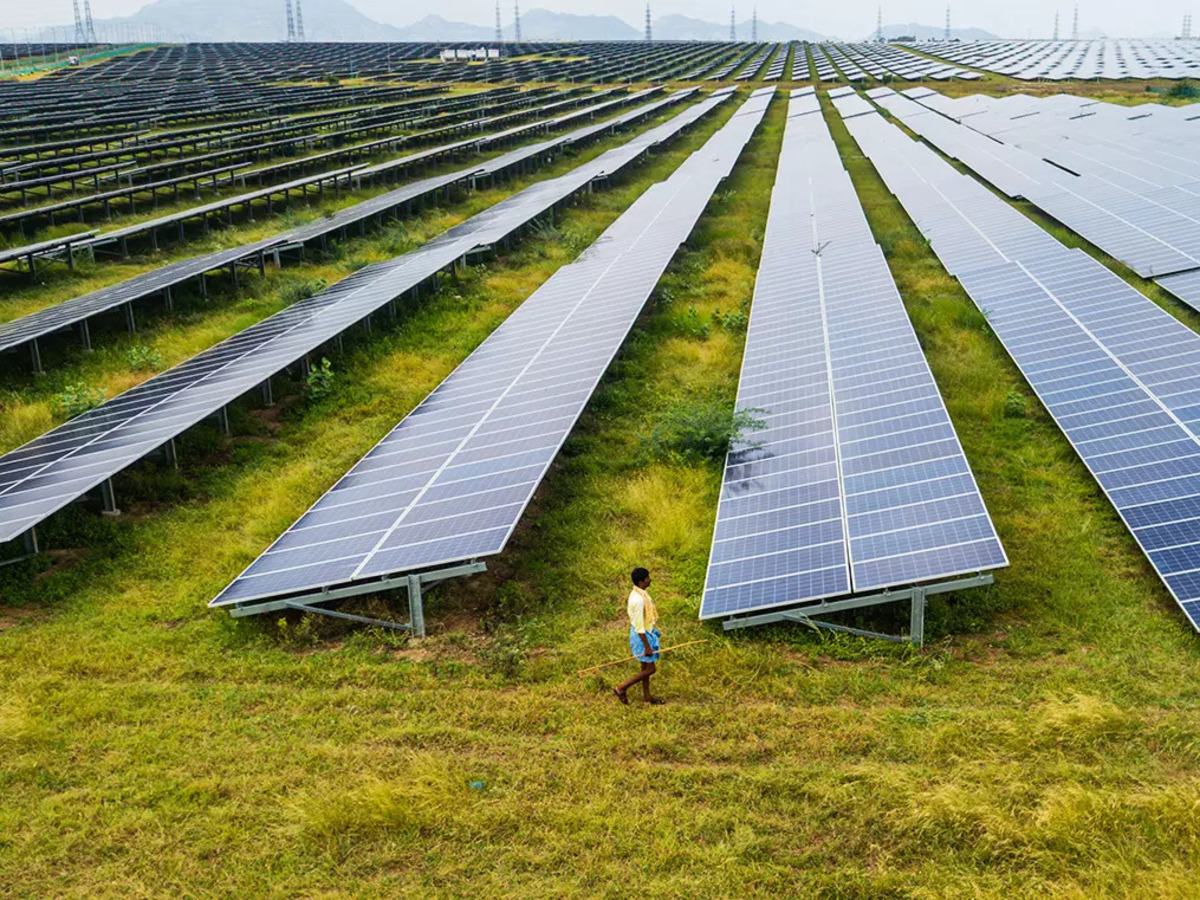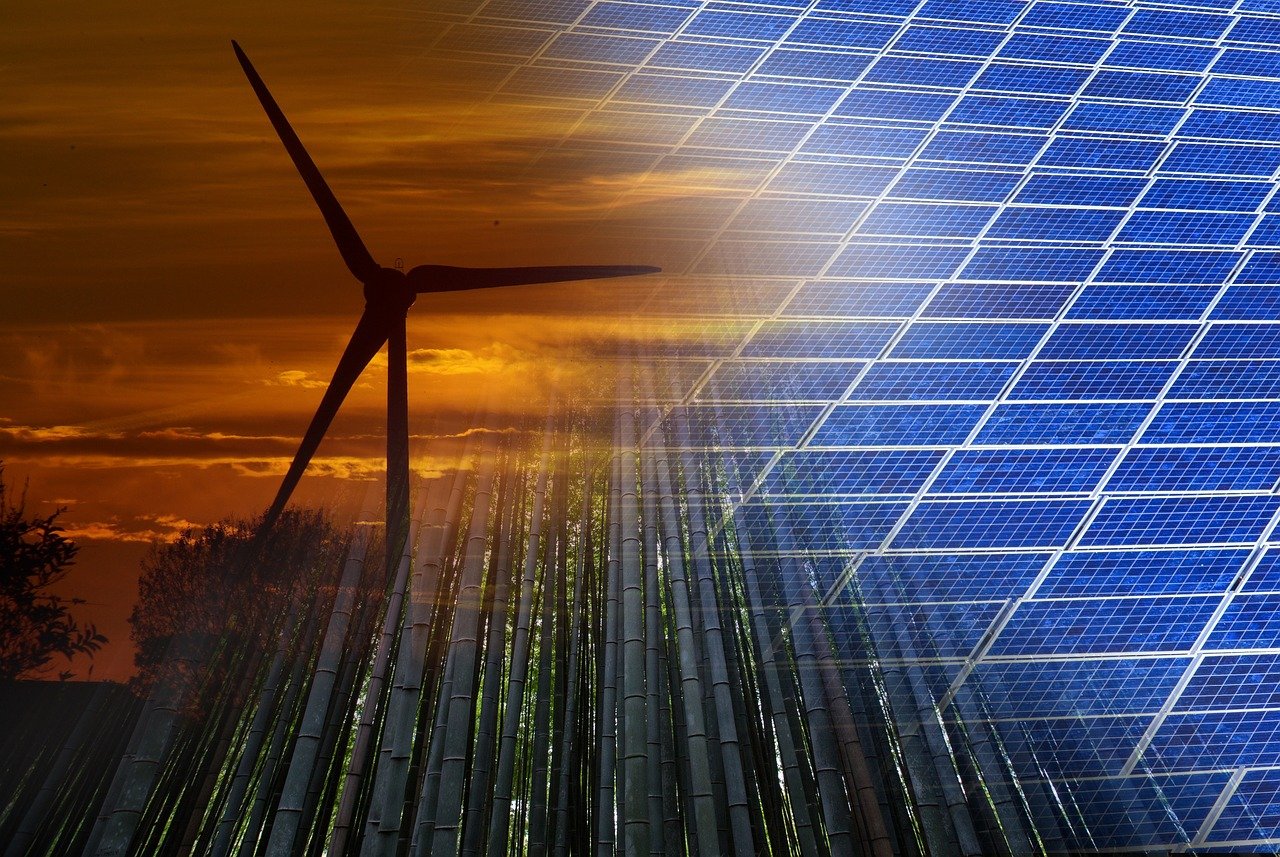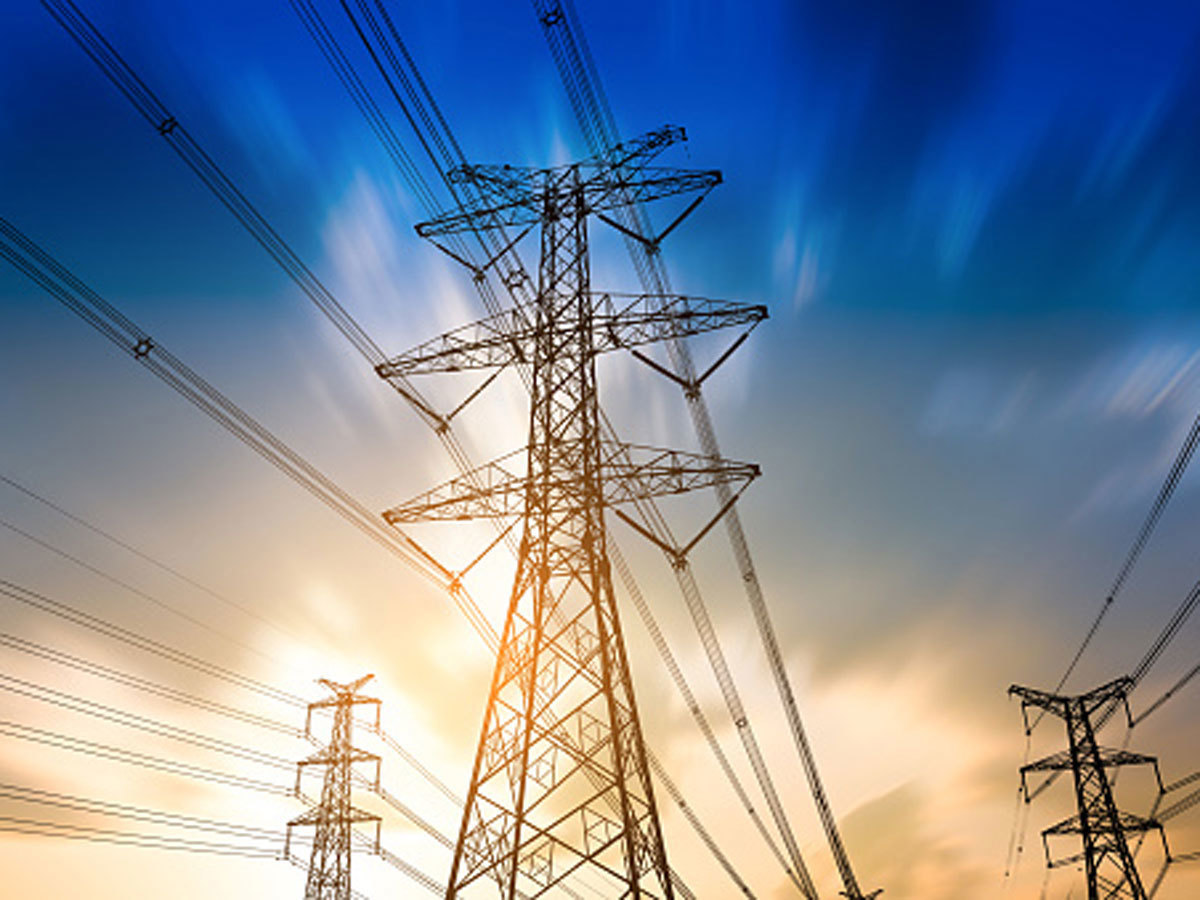India’s energy needs to be sustainable

India’s energy needs to be sustainable
As the country nears the height of summer and as a result of the reopening, energy consumption has grown. Still, the supply has been disrupted by a decline in the number of railway rakes available to transport coal and other related circumstances. The implementation of development plans for the nation’s overall growth, industrialization, and expanding population are some of the main factors driving an increase in energy consumption.
India’s energy needs are expected to treble in the next 20 years, according to Prime Minister Narendra Modi, who also said that depriving people of this energy would be the same as denying millions of people of life in his opening remarks at the World Sustainable Development Summit (WSDS). India’s power generation capacity must be increased to meet the growing energy demand. However, we must be conscious that the world’s energy production is to blame for more than a third of the greenhouse gas emissions contributing to pollution and climate change.
Coal is a significant fuel source for energy production in India. Coal-fired power plants now produce seventy per cent of India’s electricity. These facilities are in charge of 60% of the emissions of particulate matter, 80% of the mercury emissions, over 50% of the SO2 emissions, and 30% of the NOx emissions. These power facilities produce a lot of greenhouse gas emissions in addition to water use. In addition, pollution, deforestation, conflict with local populations, and wildlife devastation are all results of coal mining.
India also has to contend with rising coal imports. The nation imported more coal from 215 million tonnes in 2013–14 to 230,24 million tonnes in 2020–21. Global energy costs have increased sharply due to the escalating tensions and wars among the world’s nations, driving up the price of importing coal and other fossil fuels and interrupting the energy supply.
Other countries have switched to alternate technologies and renewable energy sources, but India is still far from creating as much green energy as it would want. Japan, for instance, has committed USD 802 million to clean hydrogen technology in FY 2021. Korea has also made significant investments in hydrogen technology. To manufacture and deliver clean hydrogen to the rest of the globe, Korea aims to produce from 130,000 tons to 5.26 million tonnes by 2040.
India presently accounts for 26.53 per cent of the world’s installed generation capacity for renewable energy. To meet 50% of its energy needs from renewable sources by 2030, the nation intends to build 500 gigawatts of renewable energy infrastructure. Through this plan, the government aims to reduce CO2 emissions by a billion tonnes and total emissions by 45 per cent. The country will benefit from switching to renewable and green energy by declining energy prices, preventing climate change, and creating jobs.

Green energy solutions like solar electricity, biogas, and others need more labour than conventional techniques. According to projections, India would generate more than a million jobs if it accomplishes its goal of constructing 500 gigawatts of renewable energy facilities. Additionally, converting to sustainable energy sources may benefit small local firms and new company endeavours.
Our over-reliance on fossil fuels for our energy requirements has another result: climate change. The nation is already dealing with the negative repercussions of climate change, including floods, famines, rising temperatures, and decreased soil productivity. India must switch from fossil fuel-dominated energy to sustainable energy generation to secure power and fulfil climate commitments. Even if half of the renewable energy produced is utilized to replace imported coal, the World Economic Forum forecasts that by switching to renewable energy sources, India may save over $90 billion in imports between 2021 and 2030.
India must develop a comprehensive plan if it wants to reach the capacity installation targets. Decentralizing power production would lower production costs and streamline the energy supply chain. To overcome the working capital issues and high installation costs in the renewable energy sector, incentives and financial help must be made available. To encourage renewable energy generation, the biogas industry should get the right incentives through Central Financial Assistance, and incentives should be distributed more quickly.
The world will gain if India quickly transitions to sustainable energy.

The statement by India that it intends to achieve net zero emissions by 2070 and to fulfil 50% of its electricity needs from renewable sources by 2030 marks a watershed point in the global effort to combat climate change. India is setting the bar for a novel approach to economic growth that might sidestep the carbon-intensive strategies many nations have previously adopted and serve as a model for other emerging markets.
The extent of the change in India is astounding. Over the past 20 years, it has had some of the most substantial economic development in the world, pulling millions of people out of poverty. India creates a metropolis the size of London to its urban population each year through the massive new building, factories, and infrastructure construction. Coal and oil have been the foundation for India’s economic development and modernization, providing an increasing number of Indians with access to current energy services. This has included installing new energy connections for 50 million people annually for the past ten years.
India now ranks third in the world for annual CO2 emissions due to the significant increase in the country’s use of fossil fuels. However, India’s CO2 per person ranks it among the lowest in the world, and they are much lower when you take historical emissions per person into account. The same is valid for energy use: the typical Indian home uses a tenth as much power as the typical American household.
India’s energy consumption is expected to increase more than any other country in the future decades due to its sheer size and enormous potential for expansion. We calculate that the majority of the increase in energy demand this decade would already have to be satisfied with low-carbon energy sources under a pathway to net zero emissions by 2070. Therefore, it makes sense that Prime Minister Narendra Modi has set more ambitious goals for 2030, including installing 500 gigawatts of renewable energy capacity, a 45 per cent reduction in the economy’s emissions intensity, and a billion tonnes reduction of CO2.
Although these goals are challenging, India’s shift to renewable energy is now well underway. It has already met 40% of its power capacity from non-fossil fuels, about nine years ahead of its pledge. The proportion of solar and wind in India’s energy mix has increased enormously. India has exceeded its commitment stated at COP 21- Paris Summit. Solar power plants are less expensive to construct than coal-fired ones because of technology advancements, consistent state backing, and a thriving private sector.
In India, more than in any other large country, renewable power is rising quicker, with new capacity additions expected to quadruple by 2026. The nation also ranks among the top producers of contemporary bioenergy, and it has ambitious plans to expand the use of this resource throughout the whole economy. In the following years, India is anticipated to surpass China and Canada, overtaking the United States and Brazil as the third-largest ethanol market globally.
But even as it aims toward net zero, India must overcome several urgent short-term obstacles. The third-largest energy importer in the world is facing more threats to its energy security due to the steep rise in commodity prices and tight markets. For many users, there is still a shortage of dependable electrical supplies. The continued use of conventional fuels for cooking harms many people’s health needlessly. Electricity distribution businesses struggling financially are preventing the sector’s fast modernization. Additionally, some of the poorest cities in India now suffer from severe pollution levels.
If fully implemented, India’s many existing policy initiatives might help to alleviate some of these issues by expediting the transition to cleaner and more effective technology. The early 2010s saw the removal of gasoline and diesel subsidies, while 2019 saw the introduction of electric car subsidies. Buildings, transportation, and significant businesses have successfully reduced their energy usage and emissions thanks to India’s effective energy efficiency policy.
Government initiatives to supply fuel gas to millions of homes for heating and cooking are facilitating a progressive shift away from conventional biomass, such as burning wood. Additionally, India is setting the stage for expanding significant developing technologies, including hydrogen, battery storage, low-carbon steel, cement, and fertilizers.
A significant economic opportunity is a shift to renewable energy. India is ideally situated to take the lead globally in green hydrogen and renewable batteries. By 2030, India may have a market for low-carbon technology valued at up to $80 billion. India needs the international community’s support to move its growth into a low-carbon trajectory. According to the IEA, the Indian energy industry will require, on average, $160 billion a year between now and 2030 to attain net zero emissions by 2070. That is three times the level of investment made today. To achieve net zero, access to low-cost, long-term financing is essential.
Getting to net zero involves more than simply cutting greenhouse gas emissions. The population of India must gain from the country’s energy transformation, and carefully thought-out policies may reduce the likelihood of trade-offs between affordability, security, and sustainability. To achieve net zero and decarbonize the hard-to-abate sectors, green hydrogen will be a crucial component.

India wants to become a leading producer and exporter of environmentally friendly hydrogen. India could easily replace grey hydrogen in the refineries and fertilizer industry by creating a 5 million tonne green hydrogen demand. Twenty-eight million tonnes of CO2 will be reduced due to this 5 million tonnes. By 2050, this percentage will increase and save 400 million tonnes of CO2 from being released into the atmosphere. India is a significant emerging economy with a population of over 1.3 billion.
Thus, its climate adaptation and mitigation objectives are transformative for India and the entire world. To help India develop, industrialize, and improve its people’s quality of life without carbonizing, NITI Aayog and the IEA have committed to working together.
Overview

Since the beginning of time, people have revered the Sun as the source of our planet’s life. The idea of sunlight as an energy source came about throughout the industrial eras. India has a vast potential for solar energy. India’s geographical surface receives around 5,000 trillion kWh of incident energy annually, with most areas getting 4–7 kWh per square meter daily. Solar photovoltaic electricity may be efficiently harvested in India, offering enormous scalability.
Additionally, solar energy allows distributed power generation and quick capacity expansion with minimal lead periods. From the standpoint of rural electrification and satisfying other energy demands for electricity, heating, and cooling in both rural and urban locations, off-grid decentralized and low-temperature applications will be desirable. Solar is the most secure energy source from a security of supply standpoint since it is widely accessible. The total amount of incident solar energy might theoretically be used to generate enough electricity to power the entire nation if it were to be caught efficiently.
Solar energy has made a noticeable difference in the Indian energy landscape in the last few years. Millions of people in Indian communities have profited from solar energy-based decentralized and distributed applications by having their lighting, cooking, and other energy requirements met in an eco-friendly way.
The reduction of labour-intensive tasks such as carrying fuel wood over long distances and cooking in smoky kitchens performed by rural women and girls lowers the risk of lung and eye diseases, creating jobs in the village and ultimately raising the standard of living and opening up opportunities for economic activity are just a few of the social and economic advantages. A substantial participant in India’s grid-connected power generation capacity has also arisen in the solar energy sector over time. It promotes the government’s vision for sustainable growth while also emerging as a crucial component of the nation’s energy demands and contributing to energy security.
The National Institute of Solar Energy estimates the country’s solar potential to be 748 GW, assuming solar PV modules will cover 3% of the wasteland area. The National Solar Mission is one of the main Missions of India’s National Action Plan on Climate Change, which has given solar energy a prominent role. Launched on January 11th, 2010, the National Solar Mission (NSM) aims to increase solar energy production. The Government of India launched the National Sustainable Mission (NSM) as a significant project to promote ecological sustainability and solve the country’s energy security issues.
Additionally, India will substantially contribute to the global effort to address climate change concerns. The Mission’s goal is to position India as a leader in solar energy by establishing the regulatory framework for its rapid dissemination across the nation. By 2022, the Mission hopes to have 100 GW of grid-connected solar power plants. This is consistent with India’s Intended Nationally Determined Contributions (INDCs) goal to attain around 40% of cumulative installed capacity for electric power from non-fossil fuel sources by 2030 and to lower the GDP’s emission intensity by 33 to 35% from 2005 levels.
The Government of India has introduced several programs to promote the production of solar power in the nation to meet the goal mentioned above, including the Solar Park Program, VGF Programs, CPSU Program, Defense Program, Canal Bank & Canal Top Program, Bundling Program, and Grid Connected Solar Rooftop Program.
Establishing a Renewable Purchase Obligation (RPO) trajectory, which includes Solar, was one of the several policy initiatives implemented, Guidelines for the acquisition of solar electricity through a tariff-based competitive bidding procedure Must run status, Waiver of Inter-State Transmission System (ISTS) costs and losses for interstate sales of solar and wind power for projects to be commissioned up until March 2022, standards for solar photovoltaic systems and equipment deployment, Rooftop solar energy provision and intelligent city development guidelines.

Changes to building codes requiring rooftop solar for new construction or structures with more excellent floor-to-area ratios, Infrastructure status for solar projects, Obtaining long-term financing from multilateral organizations, issuing tax-free solar bonds, etc. India just surpassed Italy to take over fifth place globally in deploying solar energy. Between March 2014 and July 2019, solar power capacity expanded more than 11 times, from 2.6 GW to 30 GW. India’s solar tariffs are now highly competitive and have reached grid parity.
edited and proofread by nikita sharma




